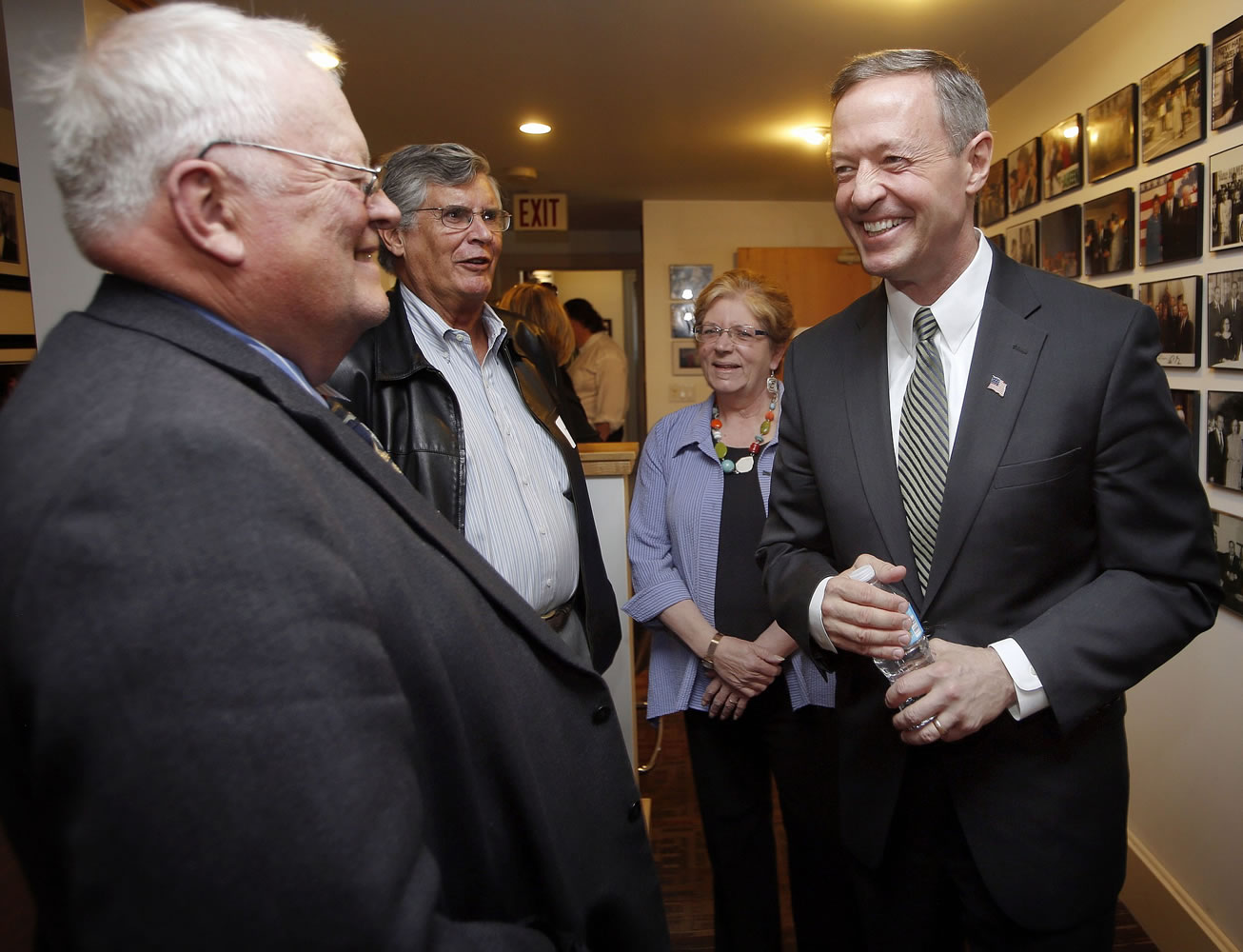MANCHESTER, N.H. — Close to a presidential announcement, Martin O’Malley said Wednesday that many Americans living in cities are worse off than they were eight years ago and Democrats in Washington wasted a chance to address poverty in the nation’s urban areas.
In appearances in New Hampshire on Wednesday, O’Malley did not did not mention President Barack Obama by name but said pointedly that Democrats have missed opportunities to make investments in cities while in control of the White House and when they controlled Congress. The former Baltimore mayor and former Maryland governor said the economic problems exposed by Baltimore’s recent riots showed the need for new approaches to rebuild cities.
“We’ve created whole swaths of Americans, particularly in American cities, who are worse off now than they were eight years ago,” O’Malley said. “When people are unheard, when their country’s economy treats them like they’re unnecessary, like they’re unwanted, like they’re unneeded, this sort of anger erupts.”
O’Malley said voters were seeking leaders focused on “getting things done” and he would make a decision on whether to seek the Democratic nomination “very, very shortly.” His trip to the nation’s first presidential primary state was probably his last before he enters the race with an announcement expected later this month in Baltimore. He would join a field dominated by Hillary Rodham Clinton, who is building a large volunteer network in New Hampshire.
O’Malley praised the Senate’s rejection of a procedural step that had been sought by Obama to speed passage of the Trans-Pacific Partnership and other trade deals. O’Malley, who has opposed the Pacific deal, said the slowdown in Congress would give the U.S. a chance to “reevaluate this notion of chasing cheap labor abroad.”
Clinton has not taken a firm position on the agreement among Pacific nations.
At a Manchester restaurant, where photos of former President Bill Clinton and Hillary Clinton hang on the wall, O’Malley walked from table to table with Dan O’Neil, a Manchester alderman and longtime friend, making introductions. Few diners were familiar with him — one woman asked if he had been the governor of South Carolina.
“Nobody knows him,” said Buck Mercier, an independent and retired construction worker from Hooksett who talked with O’Malley at the restaurant. Mercier said he voted for Hillary Clinton in the 2008 primary and was leaning toward supporting her again.
Later, while touring an office for start-ups and entrepreneurs, O’Malley was greeted by Tom “TK” Kuegler, who started a web development firm and later entered venture capital after running unsuccessfully for a Maryland state legislative seat in 1994. “When you lose this time you can go into venture capital,” he joked to O’Malley, who said, “You never know.”
If O’Malley enters the race with Clinton, he will join Vermont Sen. Bernie Sanders, an independent, in challenging Clinton. Former Rhode Island Gov. Lincoln Chafee and former Virginia Sen. Jim Webb also might run. All of the Democrats looking to challenge Clinton are hoping to become a viable alternative for a segment of Democrats who want a competitive primary.
“Whether it’s possible for O’Malley or anybody else to consolidate undecided Democrats and make the race competitive is an open question,” said Steve McMahon, a Democratic strategist who advised former Vermont Gov. Howard Dean’s 2004 presidential bid. “I think it’s extraordinarily difficult, but in our party anything can happen.”
O’Malley told reporters he would “start this race as a new face to a lot of people,” but added: “The exciting thing about New Hampshire is that it’s the sort of place where a person can become known pretty quickly.”




